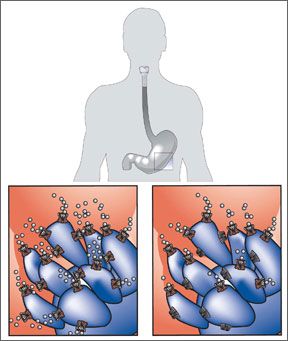Adding a stomach acid-blocking drug to a daily aspirin regimen may help patients with clogged arteries reduce their risk of upper gastrointestinal (GI) bleeding, a serious side effect of aspirin therapy, according to a study in the Aug. 11/25 issue of Archives of Internal Medicine. The research showed that patients who took an acid-blocking agent known as a proton pump inhibitor (PPI) in addition to their aspirin therapy had a decreased risk of GI bleeding (3.1 percent) compared to those who did not take an acid blocker (9.5 percent). A separate study, published online Aug. 6 in the journal Neurology, showed that limiting upper GI bleeding is especially important after a stroke. In total, 6,853 patients with acute ischemic stroke were included in the study. One hundred patients experienced gastrointestinal hemorrhage during hospitalization, of whom 36 required a blood transfusion. GI bleeding was independently associated with death or severe dependence at discharge and mortality at six months.
To continue reading this article or issue you must be a paid subscriber.
Sign in






